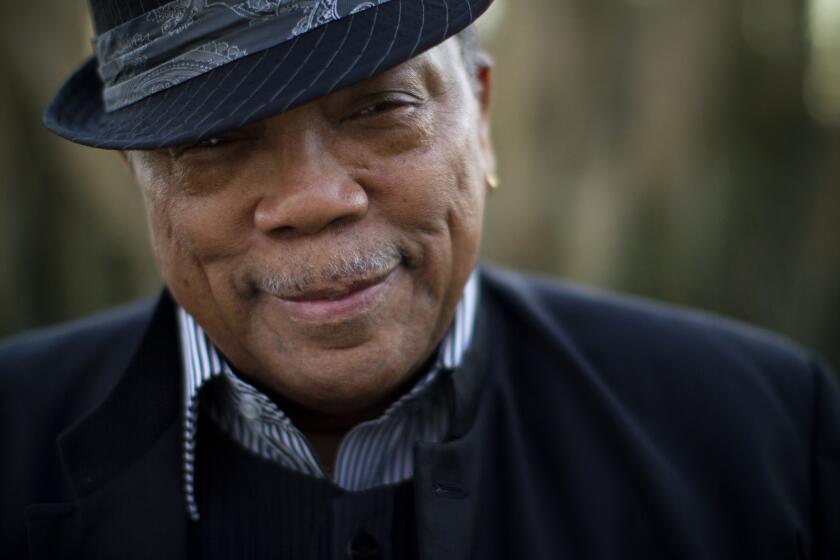Judith Jamison, celebrated Alvin Ailey dance performer and choreographer, dies at 81

Judith Jamison, a renowned performer and choreographer who devoted most of her dance career to the trailblazing Alvin Ailey American Dance Theater, has died.
Jamison died Saturday after a brief illness, the company announced in a statement on social media. She was 81. “We remember and are grateful for her artistry, humanity and incredible light, which inspired us all,” the company’s announcement added.
Debbie Allen and Misty Copeland, Black dance trailblazers in their own right, paid tribute to Jamison on social media over the weekend. “I owe so much to you for seeing me and making me know I could go all the way,” Allen wrote on Instagram.
She added: “I will always honor you and remember all the great moments we shared. It has been a blessing to be in your orbit.”
American Ballet Theatre principal dancer Copeland said Jamison’s contributions to dance left a “lasting mark on our world”; she praised the choreographer for her legacy, which she says will “continue to shape the future of dance.” The Dance Theatre of Harlem also mourned the “icon and legend.”
Judith Jamison has devoted most of her adult life to the Alvin Ailey American Dance Theater: She performed with the company for 15 years, led it as artistic director for more than two decades, and now at age 75 serves as the artistic director emerita — and one of the few remaining links to the late Ailey himself.
Jamison began dancing for the Alvin Ailey American Dance Theater in 1965, a year after meeting the company’s namesake at a fruitless television audition. Ailey was Jamison’s “spiritual walker, my mentor and my support.” Under his tutelage, she made an impression on the dance world with her grace, long limbs and magnetic presence. Most notably, she performed Ailey’s 1971 solo “Cry,” where she famously folded, extended and suspended herself in a white long-sleeved leotard and a matching long ruffled skirt.
“In my interpretation, she represented those women before her who came from the hardships of slavery, through the pain of losing loved ones, through overcoming extraordinary depressions and tribulations,” Jamison wrote in her autobiography “Dancing Spirit.” “Coming out of a world of pain and trouble, she has found her way — and triumphed.”

Jamison blossomed during her 15 years as a company dancer. She often appeared as a guest artist with companies around the world and performed memorable pieces, including 1976’s “Pas de Duke” with ballet star Mikhail Baryshnikov.
Though she left the company in 1980, Jamison pursued choreography with Ailey’s support. She choreographed her first dance, “Divining,” for the company in 1984. She brought her work to the Washington Ballet and collaborated with choreographers Maurice Béjart and Jennifer Muller/The Works.
The Broadway world also enjoyed Jamison’s talents as she starred in the Duke Ellington revue “Sophisticated Ladies” in 1981. The original cast also included influential tap star Gregory Hines, Tony winner Hinton Battle and singer Phyllis Hyman.
In 1988, Jamison formed her own company in her native Philadelphia, but a year later she returned to the Alvin Ailey American Dance Theater. Ailey saw Jamison as his successor, naming her the company’s artistic director in 1989. Ailey died of a blood disorder in December 1989. He was 58.
“He said, ‘I’m not doing well; you know I’m sick, and I’d like you to take over the company,’” Jamison recalled to The Times in 2010. “I said, ‘Sure, of course, Alvin.’ That was it. The decision to do it was instantaneous.”
Judith Jamison has devoted most of her adult life to the Alvin Ailey American Dance Theater: She performed with the company for 15 years, led it as artistic director for more than two decades, and now at age 75 serves as the artistic director emerita — and one of the few remaining links to the late Ailey himself.
During her tenure, Jamison led the Ailey company through considerable growth to a remarkable level of stability, thanks to extensive touring. According to the company, Jamison oversaw two engagements in South Africa and a 50-city global tour that commemorated the company’s 50th anniversary.
Jamison also brought Ailey’s “Revelations” (where she impressed as a woman holding a white parasol) to the White House in 2010. At the time, first lady Michelle Obama praised Jamison as a “an amazing, phenomenal, ‘fly’ woman.”
“I am a continuation of what Alvin started. And what I wanted to do was broaden it — make it bigger, and certainly not have anyone forget who this man was, what he has done for the world of dance — what a great swath of intelligence and beauty, and a different way of looking at movement, and sharing the stage,” Jamison told The Times in 2010. “He just made a big pathway for all of us to pursue our individual and collective goals.”
Jamison, born May 19, 1943, retired as artistic director in 2011. She chose choreographer Robert Battle as her successor and served as the company’s artistic director emerita until her death.
For 20 years, Judith Jamison has not just tended the flame, but fueled the dance company in ways that make it burn more brightly.
Throughout her career, Jamison was open about the discrimination that she and fellow Black company members faced early on. She told The Times in 2019, “We couldn’t actually get decent food because it wasn’t being served to us,” adding she had once been served “sour milk and cold coffee.” Black dancers, Jamison said, still face discrimination — even if “it happens more subtly.”
“It’s always very difficult to get our history straight as African Americans, as Black dancers,” she said in 2019. “That’s part of what’s so important about celebrating 60 years of Alvin Ailey, because we’re still here to tell the truth about what was in his mind.”
The Associated Press contributed to this report.
More to Read
The biggest entertainment stories
Get our big stories about Hollywood, film, television, music, arts, culture and more right in your inbox as soon as they publish.
You may occasionally receive promotional content from the Los Angeles Times.












